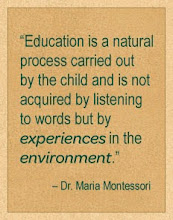Dutch Gifted Teens' Needs Overlooked Too
In the summer of 2000 we met for the very first time. Seven mothers subscribed to an Internet mailing list about Dutch gifted teens. This first encounter was kindly planned around my vacation in The Netherlands as I am the only one who lives elsewhere. We gathered at the train station in Utrecht, a city centrally located and easiest to reach for all.

Going up to the first two women who stood waiting was only briefly awkward. The four others soon followed, and after introductions and espresso we headed into the old city center. We descended a wooden staircase to one of numerous terraces on the stone wharf that lines the water of “Oude Gracht”(see photo). It is a canal like those in Amsterdam, only more narrow. This strand of bricks also gives access to various restaurants, quaintly housed in dungeon-like cellars underneath the street.
Sitting by the water’s edge, which attracted more and more people as the sun broke through the clouds, we enjoyed our conversation. Interacting was easy for we have all walked in the same proverbial pair of shoes. Without exception we have teens who, despite being gifted, are not succeeding in the public school system. In the ongoing fight for suitable education for our children we experience similar obstacles, frustrations, and pain.
Changes in instruction for highly capable students in The Netherlands seem to occur even more slowly than in the U.S. and Dutch students too sometimes become emotionally traumatized in the process! Whatever small improvements we, as gifted advocates, may help accomplish usually come too late to benefit our own children. Patience, hope, and limitless stamina are prerequisites to support our kids the best we can, especially when they have already been adversely affected!
Though Holland’s secondary schools offer four different levels of academic challenge, gifted students can also be found in the easiest one and in vocational schools due to underachievement. On the other hand, the hardest level (which guarantees entrance into universities, much like the International Baccalaureate programs in the U.S.) is no certainty that gifted students will succeed. Clearly it is not that they are intellectually unable, just that their learning needs require a differentiated approach. Rigor is usually only synonymous with strictness and can especially stifle the curiosity and unconventional thinking that many gifted students display.
All of us found that we not only encounter a lack of understanding for our gifted kids in the school system but among friends, siblings, parents, and sometimes even spouses as well. If the people in our private lives are not aware of the challenges and also the dark side that giftedness can bring, it is even harder to foster understanding and empathy in others!
That was indeed a somber realization but one that must never be allowed to overshadow the need to keep fighting for our children’s well-being in school. We will continue to share our frustrations, trials and, occasional triumphs. We simply must keep doing what we can to make people understand that gifted kids are different from the norm and need to be understood and accepted!


0 Comments:
Post a Comment
<< Home